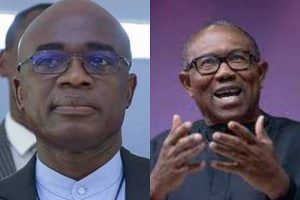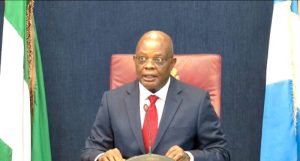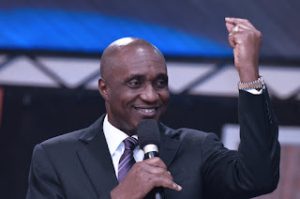
Governor Alia disowns links to Peter Obi’s visit to Benue
Governor Alia says Peter Obi’s visit to Benue was private and not endorsed by the state government.
Read More
Comment
0

Pastor David Ibiyeomie claims Jesus “hates poverty, never visited the poor”…
Founder of Salvation Ministries, Pastor David Ibiyeomie, has sparked controversy with claims that Jesus Christ detested poverty and avoided the poor during His earthly ministry.
Read More
Comment
0

Ibas seeks N300m refund from NBA over relocation of conference to Enugu
IBAS wants N300m refunded by NBA after the group relocated its annual conference from Rivers State to Enugu.
Read More
Comment
0

Pastor David Ibiyeomie claims Jesus “hates poverty, never visited the poor”, sparks online debate
Founder of Salvation Ministries, Pastor David Ibiyeomie, has sparked controversy with claims that Jesus Christ detested poverty and avoided the poor during His earthly ministry.
Read More
Comment
0

Katy Perry, Gayle King soar on historic all-female Blue Origin spaceflight
Pop star Katy Perry and journalist Gayle King joined four other women on Blue Origin’s first all-female space tourism mission, launching Monday at 9:30 a.m. ET aboard the New Shepard rocket in West Texas.
Read More
Comment
0

Rivers demands N300m refund from NBA over relocation of 2025 conference
Rivers state has requested a refund of N300 million from the NBA due to the relocation of the 2025 conference.
Read More
Comment
0

Navarro laughs off Elon Musk feud, denies being sidelined
Musk said Navarro was a “moron” in a post on X after Navarro called the Tesla CEO a “car assembler” and criticized the tech billionaire’s use of foreign parts.
Read More
Comment
0

Blue Origin launches historic all-woman crew space travel featuring Katy Perry & Jeff Bezos’ fiancée
Blue Origin rocket carrying all-female crew, including Katy Perry and Jeff Bezos' fiancée Lauren Sánchez, blasts off into space.
Read More
Comment
0
Blue Origin launches historic all-woman crew space travel featuring Katy Perry & Jeff Bezos’ fiancée
BREAKING: Blue Origin rocket carrying all-female crew, including @katyperry and Jeff Bezos’ fiancée Lauren Sánchez, blasts off into space. pic.twitter.com/TNoFq7nEhT
— Fox News (@FoxNews) April 14, 2025
Blue Origin rocket carrying all-female crew, including Katy Perry and Jeff Bezos’ fiancée Lauren Sánchez, blasts off into space.
Comment
0

Pastor charges N310,000 to fly church members to heaven
The pastor promised a flight to heaven for N310,000 per person, said Ekiti state is the takeoff point
Read More
Comment
0